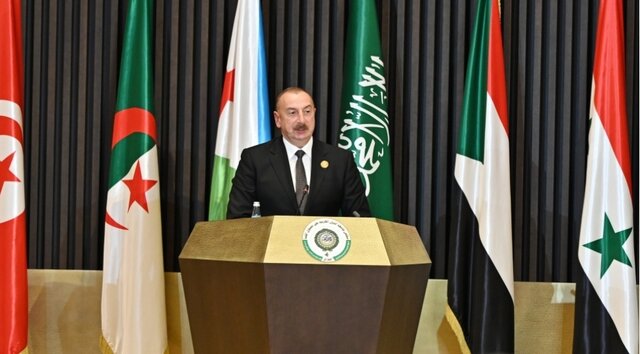Muslims will continue to lose battles against serious enemies until they learn to formulate and implement long-term strategies and understand how to do so in the modern world. Let’s be realistic – unfortunately, Muslims in the post-Soviet space can only help Palestinians through du’a, sadaqah, and information work to expose Zionist lies. Although, frankly, the latter does not work well for them for the reasons mentioned above – they only remember this struggle at such moments, without having their own information armies and lobbying in the politics of certain countries, unlike the Zionists, who create both well in advance.
But there are tasks we can set ourselves and accomplish if we play the long game. The more of these tasks are implemented on individual “fronts”, the stronger our positions will be when they are needed next time.
Now let us talk about Azerbaijan, an example that we have mentioned several times in terms of how one can and should achieve one’s military-political goals in the long term and effectively. From this perspective, Azerbaijan is of great value not only for itself, but for the Muslim community as a whole, where there are also problems, but especially for its post-Soviet part, where Muslims are generally in a disadvantaged position.
But Azerbaijan will have this value only if it becomes a truly Muslim country. And this is not even about establishing the rule of Sharia, as it is clear that there are no conditions for that at the moment. At the very least, it should be a country with a political identity aligned with the Muslim world, showing solidarity on key issues.
Interestingly, Azerbaijan is ideologically closer to this than it might appear. Contrary to stereotypes that it is a twin brother of Israel, this is not the case in terms of the state. Yes, Azerbaijan interacts with Israel and uses it to solve its problems, including the confrontation with Armenia and the containment of Iran. But Baku’s official position is based on the need to create a Palestinian state. Even in the current war, it had a balanced statement: “We condemn violence against civilians in the Israeli-Palestinian conflict zone. We express our condolences for the tragic deaths of many civilians in both Israel and Gaza. We call for an urgent de-escalation of the situation” (Statement of the Ministry of Foreign Affairs of Azerbaijan).
However, if we look at the reaction of many Azerbaijani media and a significant part of social media commentators, a natural question arises. Is Azerbaijan the twin of Turkey or Israel?
The answer may lie in the fact that Azerbaijan has two “millets” – one Muslim, united with Turkey, and the other united with Israel. Moreover, the latter does not even represent the official state position and certainly does not reflect the position of the majority of ordinary Azerbaijanis, many of whom are not interested in debates on social media. As a result, it turns out that the vocal minority, which considers itself an “elite”, determines the “public opinion” of the country with a Muslim foundation.
How can this situation be reversed? Turkey provides an example of how this can be done, where until recently the agenda was dictated by a minority of self-proclaimed “white Turks” (Islamophobes). This was overcome by Muslims through the systematic infiltration of individuals with Muslim identities into key areas of society, rather than following the Iranian or Taliban model that Islamophobes usually use to scare others.
The reasonable forces of Azerbaijani society must set themselves the same task – to achieve that “bir millet” with Azerbaijan is with Muslim Turkey, and thus with the Ummah, and not with its enemies. And for this purpose, such people must go where they can influence their people more effectively and promote Azerbaijanis everywhere who have similar inclinations.
If every Muslim soberly evaluates how he can really strengthen the Ummah by inclining his specific nation to its side or at least removing it from the ranks of its enemies, then we have a chance to approach the next battles not only with slogans but with stronger positions.

